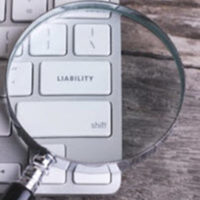What is the ‘Time on the Floor’ Rule in Maryland Premises Liability?

Under Maryland law, the doctrine of premises liability establishes certain duties and responsibilities for property owners. From a general standpoint, owners must maintain their property in a safe condition. If a dangerous condition develops on the premises, the owner must rectify the issue as quickly as possible or, at a minimum, post a warning to visitors.
Time on the Floor Rule
In order to pursue a premises liability claim in Maryland, the injured visitor must be able to show that the property owner had actual or constructive notice. Stated otherwise, the owner must know of — or have a reason to know of — a dangerous condition existing on the property.
In order to show that a property owner had actual or constructive notice of a dangerous condition, the Maryland courts often apply the time on the floor rule. The time on the floor rule exists to:
- Demonstrate how long a dangerous condition existed before causing the harm or injury in question;
- Indicate the frequency of the property owner’s inspections for dangerous conditions; and
- Establish whether the property owner exercised ordinary care in discovering or neglecting the dangerous condition.
In other words, the courts attempt to ascertain how long a dangerous condition existed before the visitor sustained harm or injury. In this way, the time on the floor rule can help show the reasonableness of the property owner’s actions. If the dangerous condition only existed for a short amount of time — potentially in between regularly scheduled inspections — then the property owner likely exercised ordinary care.
The Maryland courts apply the time on the floor rule to ensure that there was actual or constructive notice of a dangerous condition. Otherwise, a property owner could be held liable for an injury, even if they did not know about the dangerous condition or have a chance to fix it. And as soon as the owner receives notice of a dangerous condition, there is a duty to rectify or at least warn visitors.
Mode of Operation Rule
In certain other U.S. states, the courts apply the mode of operation rule, instead of the time on the floor rule. In these jurisdictions, the courts examine whether the property owner could have anticipated an injury based on normal business operations.
The mode of operation rule does not require the property owner to have actual or constructive notice of a dangerous condition. Instead, the state courts examine how the property owner conducts their operations to determine the likelihood of a dangerous condition. If it was foreseeable that a dangerous condition would develop based on these factors, then the property owner can be held liable for any resulting harm or injury.
Do You Need Legal Help?
If you need legal help with a premises liability claim in Maryland, it can be exceedingly constructive to contact a qualified personal injury attorney. The Baltimore personal injury attorneys at Iamele & Iamele, LLP have many qualifications in the arena of personal injury law, including premises liability. If you need legal help, contact us today for a free initial consultation.
https://www.iamelelawfirmbaltimore.com/inspecting-2-landmark-negligent-security-cases-in-maryland/

